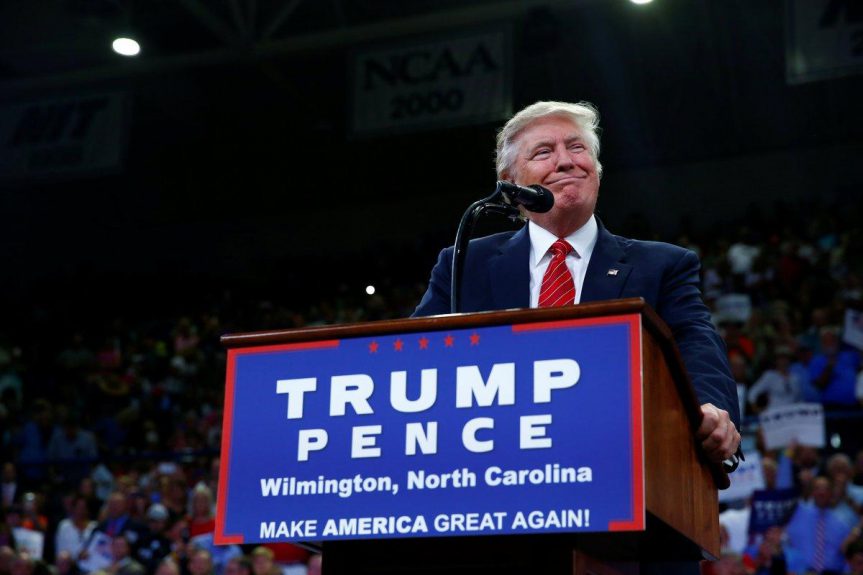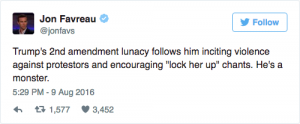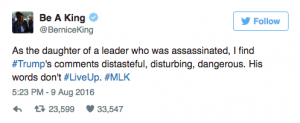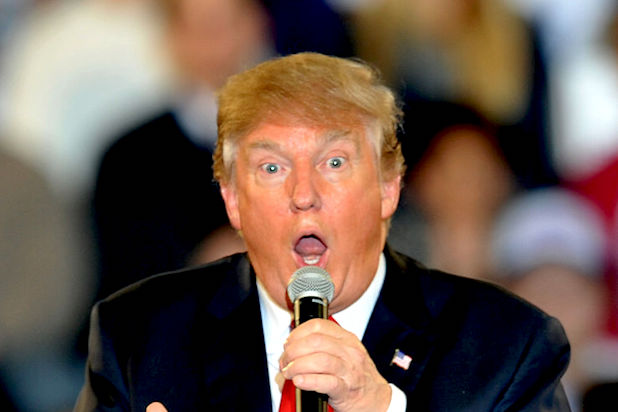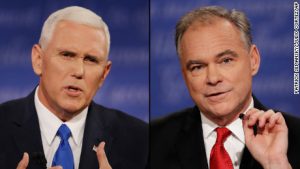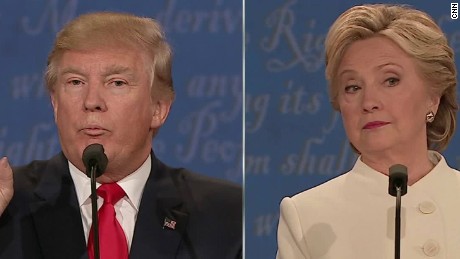 On Wednesday October 20 in Las Vegas Nevada, the third presidential debate of 2016 took place. The past two time Hillary and Donald, heated arguments dominated the conversations. This time was no different.
On Wednesday October 20 in Las Vegas Nevada, the third presidential debate of 2016 took place. The past two time Hillary and Donald, heated arguments dominated the conversations. This time was no different.
Moderator, Chris Wallace, started the candidates on some controversial topics, such as The Supreme Court and The Constitution.
Clinton had the stage first, saying she wants a supreme court that will stand up for women’s rights and the LBGT community, and stand against Citizen’s United.
Next, Trump took an opportunity to pivot away from matters, such as women’s rights, that make him look unpresidential, to talk about the 2nd Amendment.
“We need a Supreme Court that in my opinion is going to uphold the second amendment and all amendments, but the second amendment which is under absolute siege.”
This began the conversation (which was surprisingly tame).
Clinton rebutted saying,
“I understand and respect the tradition of gun ownership that goes back to the founding of our country, but I also believe that there can be and must be reasonable regulation.”
Each candidate made their stance, but how did they do it?
Clinton talked about gun control through storytelling and appealed to the emotions of her audience. Similar to the My Mom political ad on gun violence. She began her statement by saying, “I lived in Arkansas for 18 wonderful years.” This is very typical of a fairytale which often begins with A long time ago in a land far far away.
She also appeals to emotions later after Wallace mentions the Heller Decision. She says, “Well, I was upset because unfortunately, dozens of toddlers injure themselves, even kill people with guns because unfortunately, not everyone who has loaded guns in their homes takes appropriate precautions.” Here Clinton identifies her anger that will resonate with others who felt upset about the court’s decision. She then allows for others to understand her emotion with the information on toddlers.
What do you think? How do you think that Trump’s argument stood up to Clinton’s?
Click here to see a full transcript of the debate.
Click here to watch the debate.

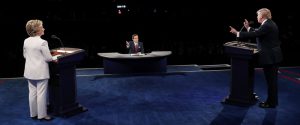
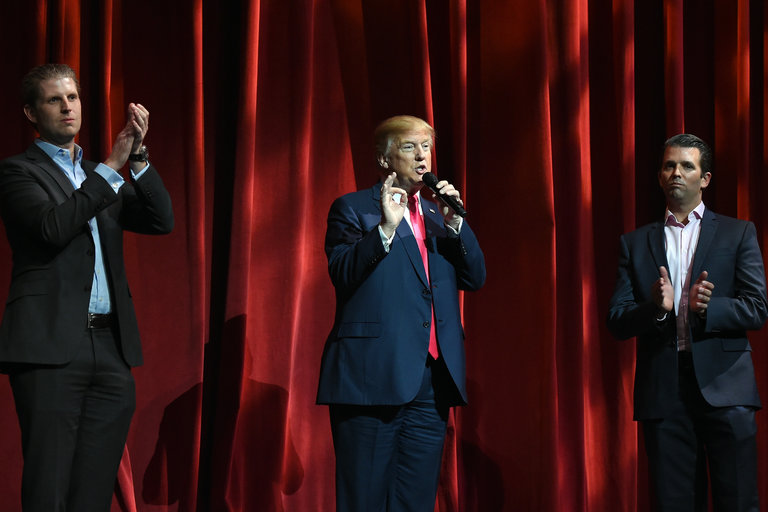
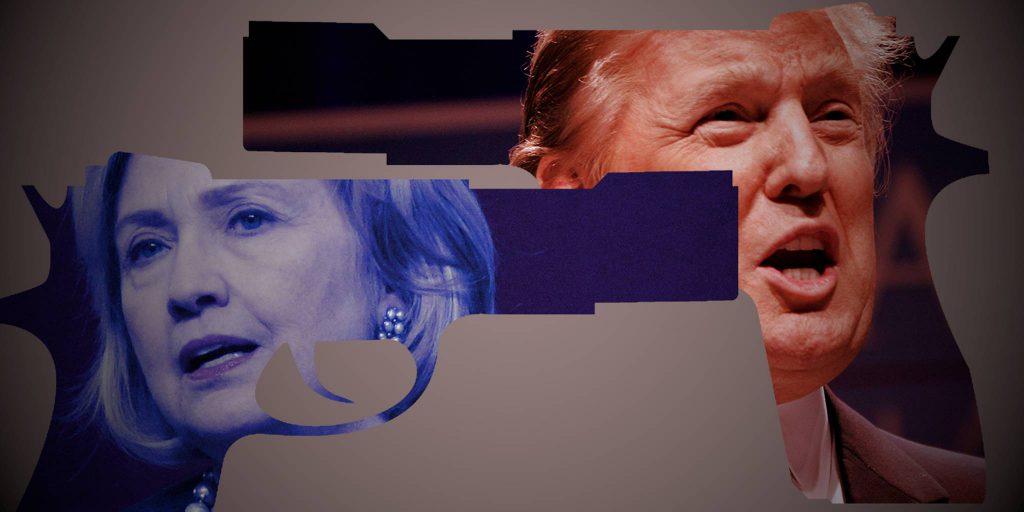
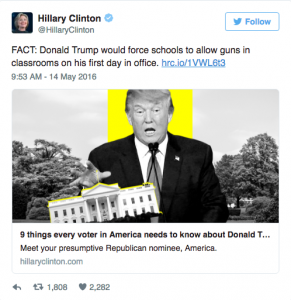
 In an interview about an Orlando shooting of a nightclub on June 14, 2016, Gary Johnson made his stance on guns clear: Gun Restrictions will not stop gun violence.
In an interview about an Orlando shooting of a nightclub on June 14, 2016, Gary Johnson made his stance on guns clear: Gun Restrictions will not stop gun violence.
 Hillary Clinton informs her audience of her stance through the use of positive, story-telling ads.
Hillary Clinton informs her audience of her stance through the use of positive, story-telling ads. 
